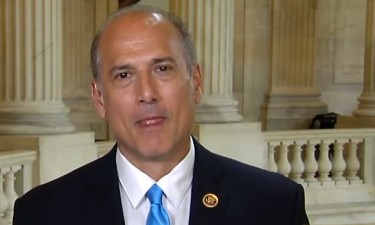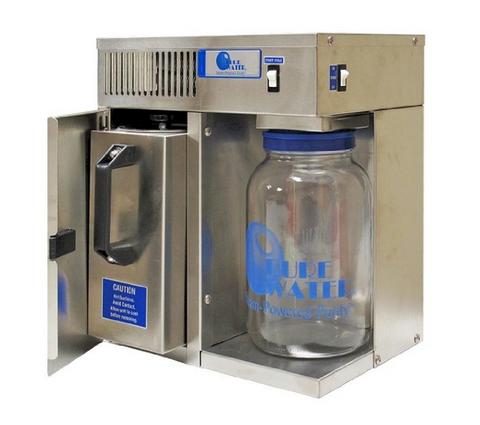
In 2007, Congressman Marino resigned from his position as a U.S. Attorney in Pennsylvania after a Department of Justice investigation was launched against him for giving a reference to a convicted felon to operate slot machines.
Marianne Skolek Perez, Investigative Reporter
(MYRTLE BEACH) Less than a month into his re-elected term in the House of Representatives, Congressman Tom Marino tendered his resignation today and will vacate his seat in six days. Although Marino did not cite a reason for leaving his prestigious elected position, he announced his plans to work in the private sector and use his vast legal and business experience to create jobs around the nation.
I found Marino’s untimely resignation interesting — very interesting. Over the last few years, I have written several articles about him and his questionable actions as regards the country’s opioid epidemic. Links to my articles are shown below.
In October 2014 I wrote an article for Global News Centre regarding Congressman Marino and Congresswoman Marsha Blackburn (TN) sponsoring HR 4709. The bill sparked my interest because it tied the hands of the Drug Enforcement Agency (DEA) if a pharmacy made a serious mistake with an opioid prescription. The pharmacy would not be sanctioned by the DEA, but rather would only have to provide a remedy to the mistake in writing.
Marino evidently was not happy with my article and Global News Centre stood by the facts contained in it. A press secretary from the congressman’s office contacted the newspaper stating they were going to use Congressional resources to investigate both Global News.com and myself. There was nothing further from the Marino camp until 2017 when Marino was nominated by President Trump to the prestigious position of “drug czar” to combat the raging opioid epidemic in the country. Actually Marino had been nominated twice in a short period of time by the President. The first time he was nominated, Marino withdrew his name for consideration citing “personal reasons.”
The second time Marino was nominated by the President, a damning report from The Washington Post and “60 Minutes” showed that he advocated for legislation that would make it harder for the DEA to freeze suspicious opioid shipments, a win for drug distributors. Marino withdrew from consideration as drug czar and ran for re-election to his seat in Congress representing Pennsylvania.
So why would Congressman Marino leave the political arena after riding such a potentially prestigious roller coaster? Is the private sector a lucrative position in the pharmaceutical industry amid numerous lawsuits against pharma — such as TEVA, Purdue Pharma, Johnson & Johnson and Endo — or is it potentially the result of another scandal?
In 2007, Congressman Marino resigned from his position as a U.S. Attorney in Pennsylvania after a Department of Justice investigation was launched against him for giving a reference to a convicted felon to operate slot machines. Marino claimed he had written permission from the Justice Department to issue the reference — the Justice Department confirmed Marino was being less than truthful. Marino resigned as U.S. Attorney and the internal probe against him was dropped by the Justice Department. He then took a position with the convicted felon earning $250,000 a year — until he was elected to Congress.
Marino’s working against the DEA could have potentially resulted in tens of thousands of deaths each year — and ultimately cost him the drug czar position. So what will we hear next regarding Congressman Marino — a congressional investigation averted by a resignation? Could happen. I was threatened with one by his office.
Links:
Marianne Skolek Perez
Consultant to attorneys on opioid lawsuits filed throughout the country
Investigative Reporter covering the opioid epidemic writing for
Global News Centre, Salem-News.com, Sons of Liberty Media, The Washington Standard and Freedom Outpost
908-285-1232 - cell
 Global News Centre’s Marianne Skolek, is an Investigative Reporter who focuses on the Prescription Opioid/Heroin Epidemic in the U.S. and Canada. In particular, Marianne has covered the criminal marketing of OxyContin going back to 1999 and continuing to the present.
Global News Centre’s Marianne Skolek, is an Investigative Reporter who focuses on the Prescription Opioid/Heroin Epidemic in the U.S. and Canada. In particular, Marianne has covered the criminal marketing of OxyContin going back to 1999 and continuing to the present.
In 2002, Marianne lost her daughter, Jill to prescribed OxyContin which her physician referred to as “mobility in a bottle.” It was, in fact, death in a bottle. After doing extensive research on the maker of OxyContin, Purdue Pharma, Marianne began working with the Department of Justice in Virginia in their criminal investigation into Purdue Pharma and in July 2007 was asked by the U.S. Attorney John Brownlee prosecuting the case to testify against the three CEO’s of Purdue Pharma, Michael Friedman, Paul Goldenheim, MD and Howard Udell, Chief Counsel. The CEO’s pleaded guilty to misleading the medical profession about the dangers of OxyContin. Marianne also testified against Purdue Pharma at a Judiciary Hearing of the U.S. Senate in July 2007.
In addition, a dangerous and highly addictive opioid named Zohydro has been approved by the FDA against their Advisory Committee’s advice and Marianne continues to alert Attorneys General, Senators and Congressmen as to the FDA’s irresponsibility in the out of control prescription opioid/heroin epidemic killing and addicting in the tens of thousands each year. Zohydro has been referred to as “heroin in a capsule” and its lowest dosage (10mg) contains twice as much hydrocodone as found in a Vicodin pill. The highest single dose of Zohydro contains as much hydrocodone as 5 to 10 tablets of Vicodin or Lortab. Zohydro mixed with alcohol can be fatal and has no abuse deterrent built in which will make it easy to crush and deliver a fatal dose of the opioid.
Currently Marianne has been instrumental in calling for the termination of Margaret Hamburg, MD, Commissioner of the FDA as well as Bob A. Rappaport, MD and Douglas Throckmorton, MD for their lack of commitment to safeguarding the American public against the prescription opioid/heroin epidemic. Marianne’s research, writing and contact with government agencies and attorneys has also exposed the heavily funded pain foundations set up by the pharmaceutical industry and their paid physician spokespersons who convinced the medical boards in 50 states and Canada that dangerous opioids such as OxyContin were less likely to be addictive. These physicians — in particular Scott Fishman, MD, J. David Haddox, DDS, MD, Perry Fine, MD, Lynn R. Webster, MD, Russell Portenoy, MD also downplayed the risks of addictive opioids in books as authors. These books are still available for sale and promoted to the medical profession.
Here are links to Marianne’s involvement in exposing the national conspiracy of the prescription opioid/heroin epidemic, the FDA, the pharmaceutical industry, their pain foundations and paid physician spokespersons.
http://www.salem-news.com/by_author.php?reporter=Marianne%20Skolek
http://www.youtube.com/watch?v=tmPG1VjD61U&list=UUWoHUEr4ZAbQOfIqtOArjgg&index=6&feature=plcp
https://www.facebook.com/photo.php?v=855537227796352&set=vb.658186307531446&type=2&theater
 Global News Centre’s Marianne Skolek, is an Investigative Reporter who focuses on the Prescription Opioid/Heroin Epidemic in the U.S. and Canada. In particular, Marianne has covered the criminal marketing of OxyContin going back to 1999 and continuing to the present.
Global News Centre’s Marianne Skolek, is an Investigative Reporter who focuses on the Prescription Opioid/Heroin Epidemic in the U.S. and Canada. In particular, Marianne has covered the criminal marketing of OxyContin going back to 1999 and continuing to the present. 




















